Transfer Crypto
Learn how to send and receive crypto securely with step-by-step guides for Trezor, BTC & ETH fees, wallet address types, and privacy tips. Start managing crypto today!
Posted by
Related reading
Comprehensive crypto glossary with concise definitions of key terms like Airdrop, Blockchain, HODL, Smart Contracts, Staking, and more. Perfect for beginners and experts!
Master crypto trade tracking with top tools! Learn portfolio tracking, tax reporting, API imports, and avoid common mistakes with expert tips.
Wallets consist of a private key and a public address. The private key allows you to spend your funds, while the public address is where you or others can send coins to. Think of the public address as your email address — anyone can send you an email, but only you, with your password (the private key), can access the account and send emails. The technical side of things looks a bit different, but this is a beginner's guide. Let's roll with that analogy for now.
Send Crypto (Trezor Wallet)
1. Select which Coin you want to send
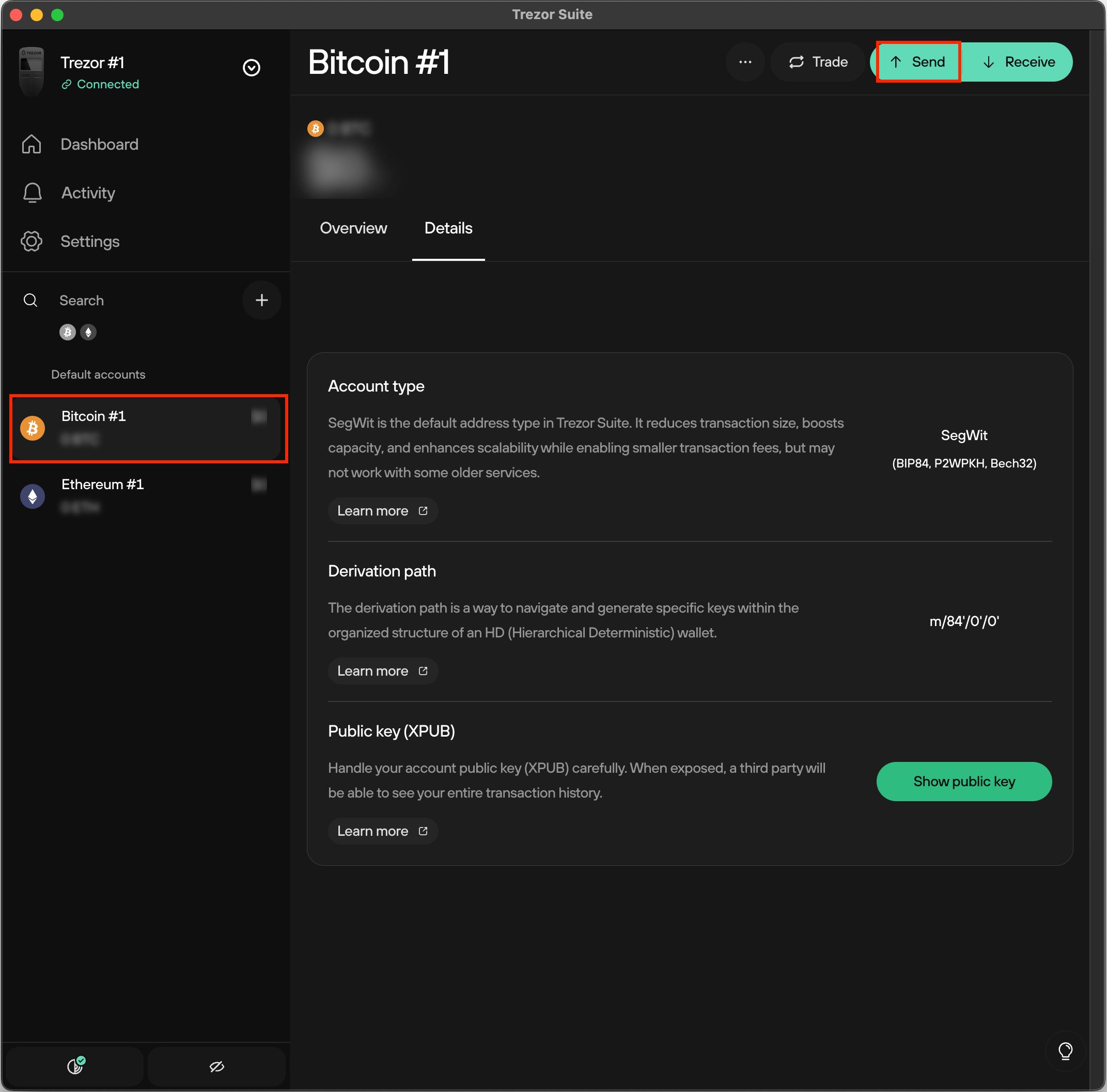
- 2. Click send
3. Enter the amount you want to send.
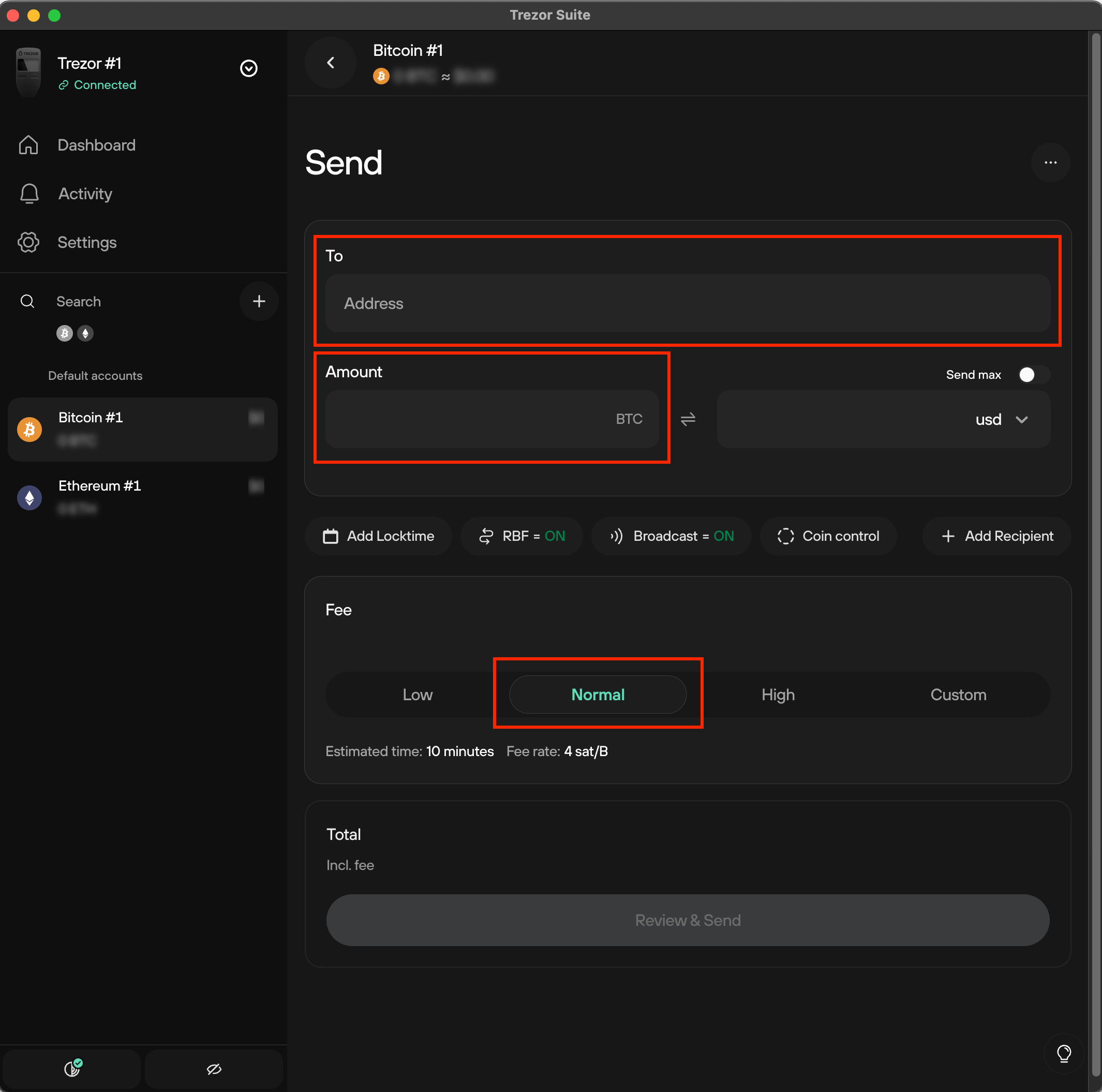
- 4. Select the fees.
- 5. Confirm transaction on your device and send.
Receive Crypto (Trezor Wallet)
- 1. Select the coin you want to receive.
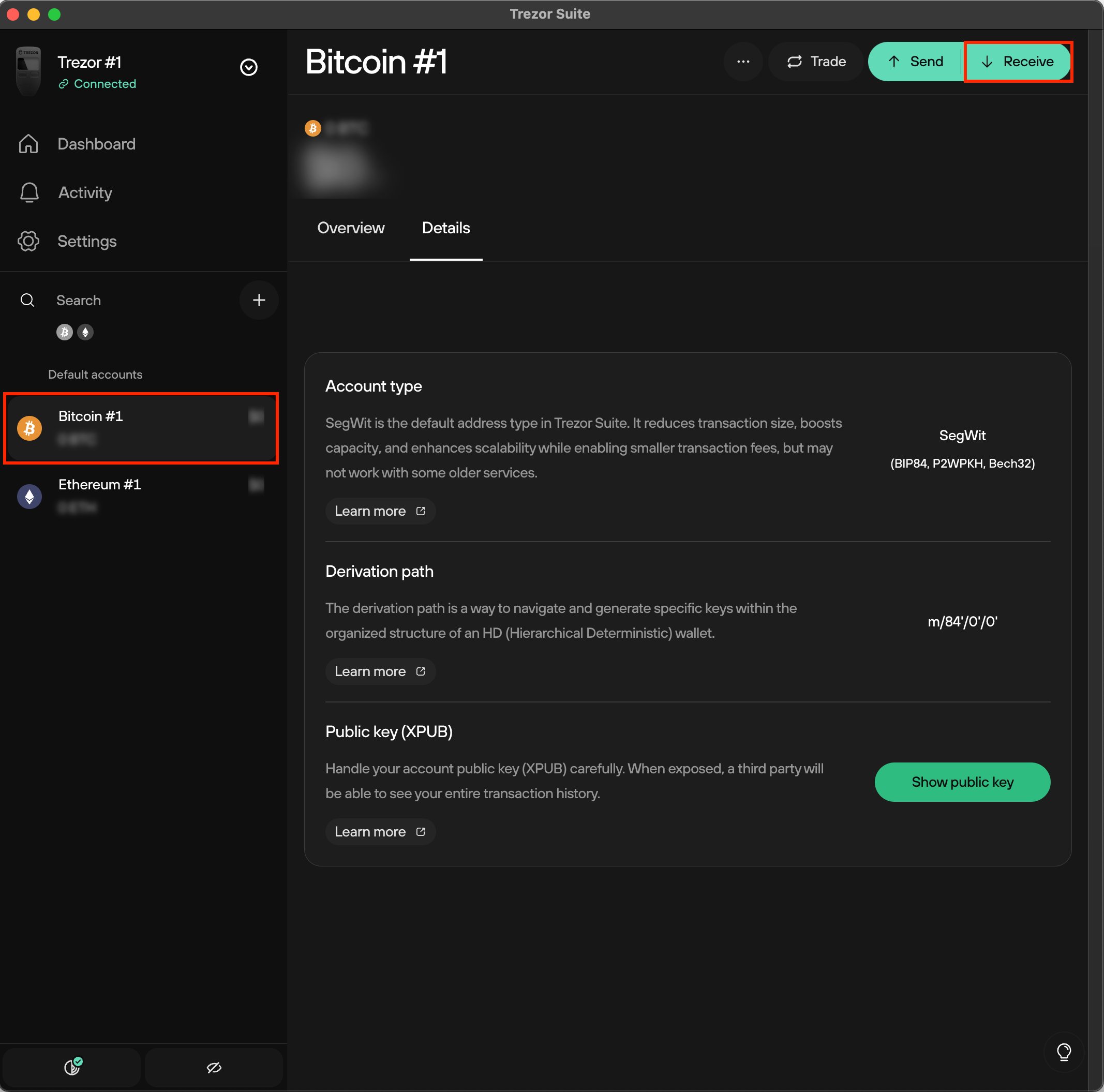
- 2. Select receive.
- 3. Your wallet shows one or multiple addresses. You can generate a new address each time you send crypto to your account. This enhances your privacy and security. Using a new address for each transaction makes it more difficult for third parties to link transactions and track the total balance of a wallet. If an address is compromised, only the funds sent to that particular address are at risk. Multiple addresses can help limit potential losses.
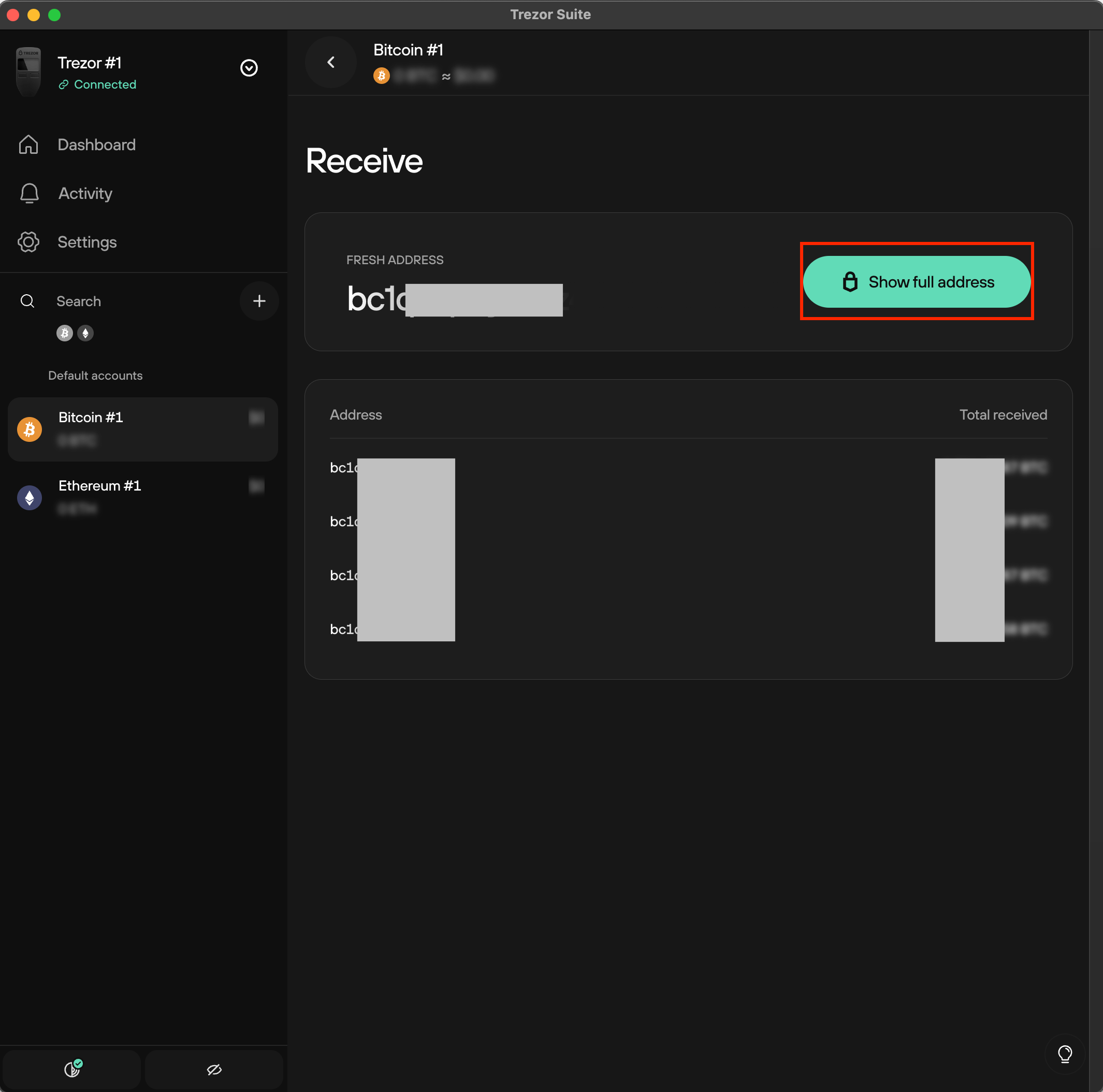
- 4. Copy the address.
- 5. Use it, for example, when you want to transfer crypto from an exchange to your wallet.
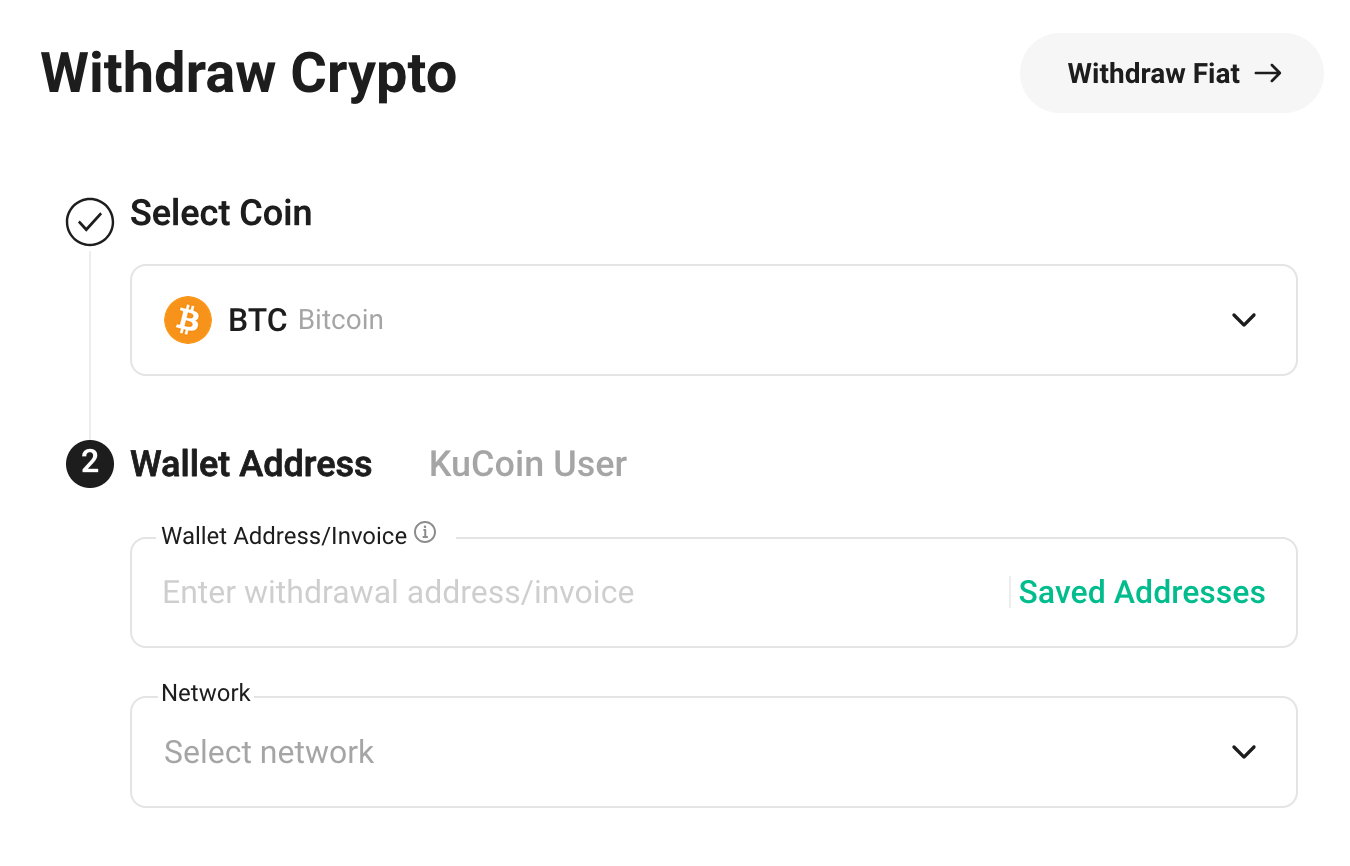
Transfer Etherium
Transferring ETH looks similar:
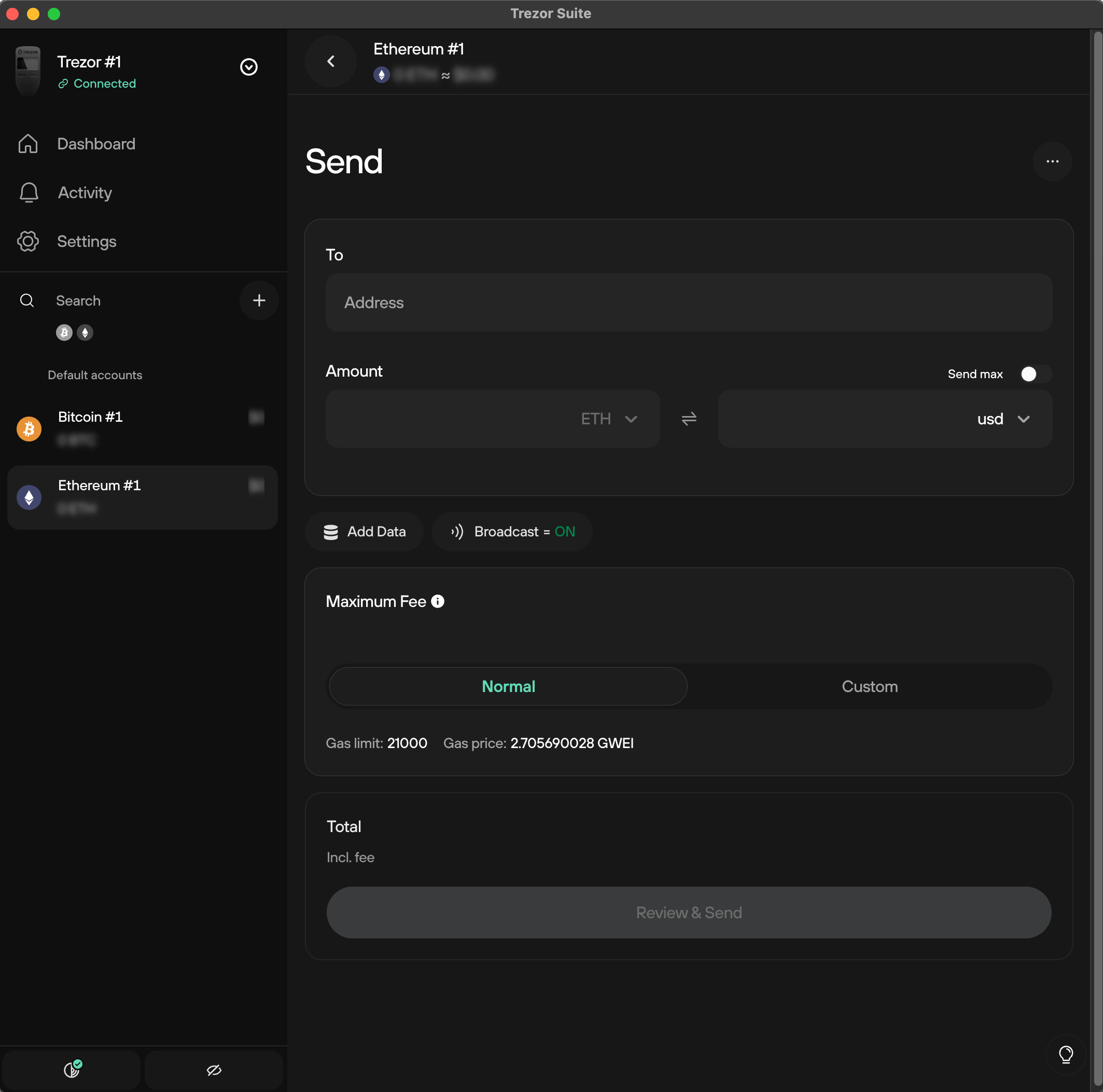
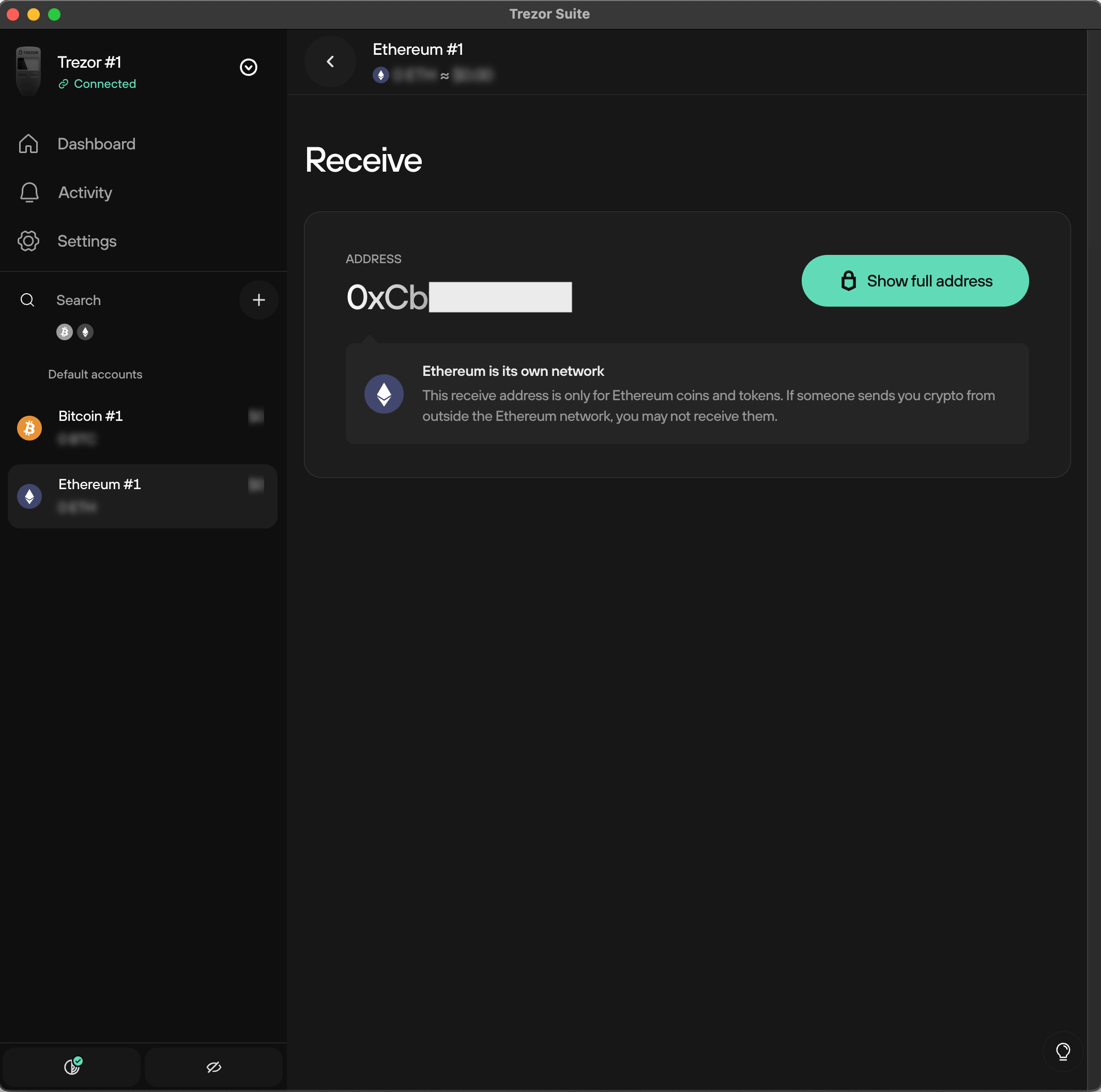
Public Nature of Transactions
BTC and ETH transactions are public. Everyone can see every transaction that has ever been made. So don't think that you are invisible when using crypto. There are a lot of tools and companies that are able to collect data from scanning and analyzing the blockchain. There are some crypto coins with a focus on privacy and security, trying to hide the amounts sent and the participants of transactions.
Look up BTC transactions: https://www.blockchain.com/de/explorer or https://explorer.btc.com/de/btc.
Transaction Fees and Address Types
BTC Fees: Understand that transactions incur fees. Bitcoin has transaction fees which vary based on network demand. The higher the fees (compared to others), usually, the faster the transaction. Miners get fees to verify transactions with a new block. They can choose which transactions they want to verify. Because they have the choice, they prefer transactions with higher fees. When the network is overloaded or congested, fees rise. Fees can be volatile and can stretch from under a dollar to 60$ or more.
BTC Address Types:
Bitcoin has different address formats. When sending money between wallets or exchanges, you might come across these formats:
- Legacy - P2PKH starting with 1; e.g. 1Gnpl0VKrh6DpOYJUEW1Svpxmq7ErvOsRJ
Old address format - Segwit - P2SH starting with 3; e.g. 32l7u5Lr8xqHTGQKW0anYtibXoHS4ueJm3
- Native Segwit - Bech32 starting with bc1; e.g. bc1xytf2hzoj7r99bw7kmsu9ptgnbkpi4vbexd6s8
Stores less information in the transaction. This format has lower fees compared to Legacy or Segwit. - Taproot starting with bc1p; e.g. bc1p4jgzf7o1wrm5picfnauubstlheftsy9qmvoxl8wwa2ykjdsh6kwbh4gnaj
More details: https://cointelegraph.com/learn/types-of-bitcoin-addresses
ETH - Gas Fees:
Gas fees are transaction fees paid by users to compensate for the computational energy required to process and validate transactions on the Ethereum blockchain.
- Gas: A unit that measures the amount of computational effort required to execute operations like transactions and smart contracts.
- Gas Limit: The maximum amount of gas a user is willing to spend on a transaction.
- Gas Price: The amount of Ether (ETH) a user is willing to pay per unit of gas, usually measured in Gwei (1 Gwei = 0.000000001 ETH).
- Formula: Transaction Fee = Gas Limit * Gas Price